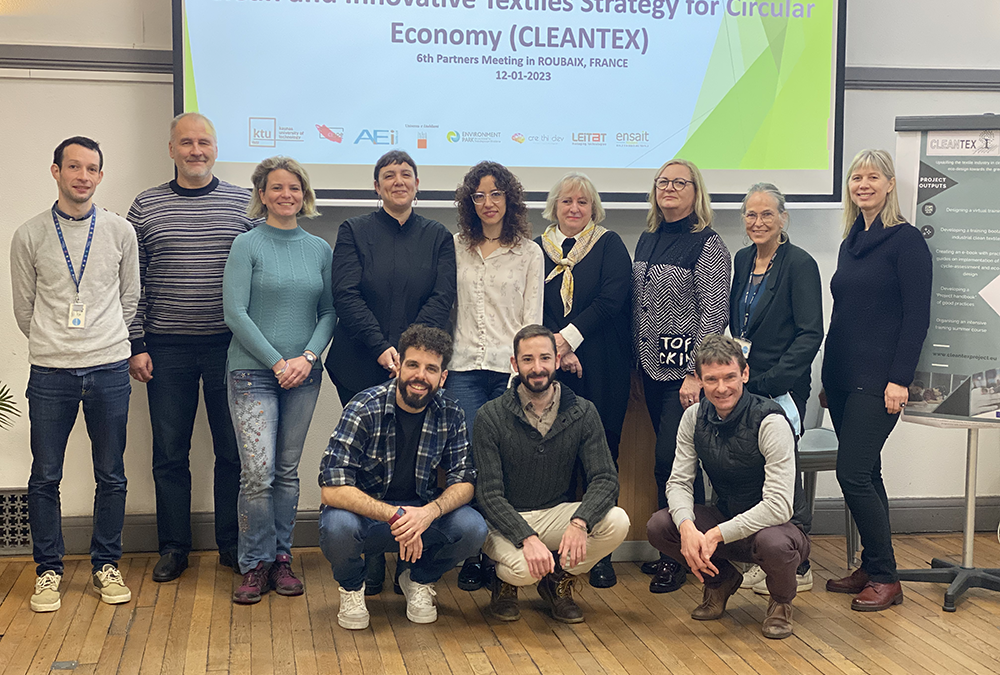Last Thursday January 12th took place the Final Meeting of the Cleantex project consortium in Roubaix, France. ENSAIT was the hosting partner.
The event started with Envipark presenting the performance of the output 1, the Virtual Training Program, after some months of its launch. This educational platform, allocated within the Cleantex website, is a MOOC (Massive Open Online Course). This means that the content generated by the partners about sustainability and eco-design within the textile industry, are completely accessible and free to all those interested stakeholders that desires to train themselves or use it to teach other people.
The second point to talk about was the Cleantex Bootcamp. Ensait, the partner in charge exposed the last version of the output, improved after its implementation last summer with students with a Summer School format. The Bootcamp consists in a dynamic learning proposal that is composed of several phases that enable students to learn any content while they train elemental skills such as teamwork, creativity, initiative, oral expression, etc. This methodology can be applied to any topic, but the Cleantex bootcamp focuses on the textile sector sustainability and counts with several empirical examples, suggestions and learnings obtained after its implementation. In that sense, the rest of the outpus elaborated by the partnership act as elemental resources that complement the experience and help students to enjoy the learning experience and exploit their abilities. For instance, the Cleantex MOOC is a previous activity for the students to get a theoretical basis.
Afterwards, Leitat, presented a review of the output 3, the Cleantex E-book. It contains theory and methodology about LCA (Life Cycle Assessment), Eco-design implementation, phases, and criteria as well as real examples from companies that implemented sustainable models and actions in their processes. As mentioned, it is key resource for the students during the Bootcamp implementation.
Then, AEI Tèxtils and Cre.Thi.Dev. exposed their review about the Project’s performance on dissemination and quality aspects for both last semester and the overall project duration (moret han 2 years).
Finally, KTU gave some final indications to the partnership in line to the completion of few management tasks as well as some warm gratitude words for the work done by all partners during all this time.

